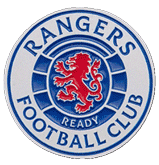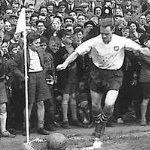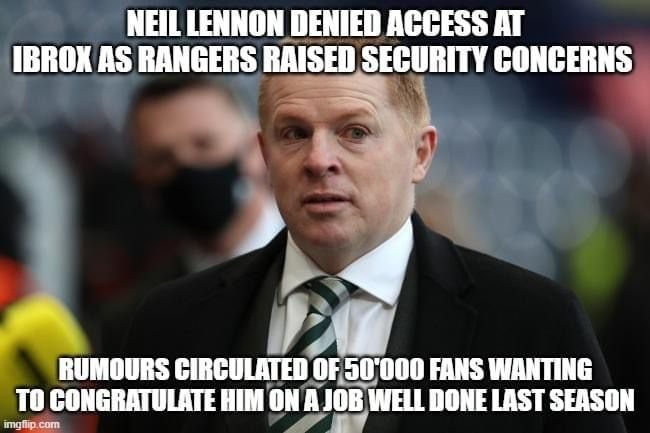Leaderboard
Popular Content
Showing content with the highest reputation on 18/09/21 in all areas
-
aka Transdniestria; or Transnistria, as you will know it better. Everything you wanted to know about FC Sheriff of Tiraspol, and most things you didn't, the most important and relevant fact being that it is in the CL Group Stage, and we urny. From The Guardian, today: A visit to FC Sheriff: Champions League upstarts from an unrecognised land Soviet sounds, unanswered questions and local pride emerge from trip to Moldovan club from Russia-backed Transnistria by Nick Ames in Tiraspol Sat 18 Sep 2021 08.00 BST https://www.theguardian.com/football/2021/sep/18/fc-sheriff-champions-league-transnistria-moldova The strains of one anthem give way to a hybrid version of another. A meaningful show of applause for the Champions League music is dying down when, as FC Sheriff Tiraspol prepare for kick-off, the ultras in sector 13 erupt into verse. They do it before every game but rarely in numbers like these, nor in comparable volume: the lyrics have been tweaked but the melody is unmistakably that of the old Soviet national song, nowadays used by Russia. The choir then segue into their adaptation of another rousing tune from the USSR era, the “Moscow in May” army march. Moscow is 700 miles and two borders away but in the capital of Transnistria, whose biggest bookshop offers framed posters of the local president Vadim Krasnoselsky alongside images of Vladimir Putin and Joseph Stalin for about £1 each, no such flourishes feel out of place. Somewhere, presumably in a secure part of the stadium, although clarity is fittingly absent, Viktor Gushan can allow himself to bask. “Europa League? My friends are laughing at me!” the secretive Sheriff president would once complain to club employees, even though a series of shots at the continent’s second competition seemed well above par for a team nominally representing the tiny Moldovan league. They routinely win that at a canter and are playing tonight because, in May, they were champions for the 19th time since the beginning of the century. With varying degrees of near-miss, the big time had been beyond them on the previous 18 attempts. The oligarch set will need a new in-joke now. Gushan’s face-saving exercise accelerates 16 minutes from the start when Adama Traoré, the Malian winger, puts Sheriff ahead against Shakhtar Donetsk with a dazzling volley. By the evening’s end they have won 2-0 and sit atop their first Champions League group, pipping Real Madrid and Internazionale. The hosts’ besuited manager, Yury Vernydub, started a celebratory knee-slide at full time before wisely pulling out halfway through; his young, diverse team have linked arms and run giddily towards their public. It is their triumph: the question is who, in this thin stretch of territory that has been self-declaredly independent from Moldova since 1991, shares in it. A monument to Vladimir Lenin in Tiraspol’s main square. Photograph: AP The answer is simple for fans like Rodion, who was five when Sheriff were founded in 1997. “I thought I’d be an old man with a beard, taking his grandson along, before this happened,” he says. Below the collar of his shirt he wears a pin badge of the Transnistria flag: a horizontal green stripe between two thicker chunks of red. Larger versions display a hammer and sickle in the top-left corner. Nobody inside the United Nations recognises the flag: Transnistria, known locally as Pridnestrovia, may essentially self-govern but, according to international law, it remains part of Moldova. A vote among almost 400,000 citizens in 2006 came out overwhelmingly in favour of independence and a possible future integration into Russia but was not taken seriously abroad. “The way for me is to be an independent nation,” Rodion says. “But I don’t need any referendums, any international recognition. I can personally identify myself as a Pridnestrovian.” The sentiment is unmistakable in conversations across the age spectrum in Tiraspol: while there are differing views about the benefits of proximity to Moldova and its recently installed pro-western government, there is a fervour in their assertions of identity. The rise of Sheriff adds some fuel, even if attendances at league games rarely top 1,500. An unscientific survey of taxi drivers, mostly over 40, finds little interest in the club but the generation below understand the benefits of external exposure. “We are happy the world would know something about us and our team,” says Ira, in her early 20s. “Many people see FC Sheriff as our native team and they instil patriotism when they win,” says her friend Vitaly. Cultural and economic ties in Transnistria point firmly towards Russia, whose influence is omnipresent. A Russian army installation is visible shortly before the road out of town reaches Sheriff’s sprawling $200m complex; in the city centre, Russia’s flag flies alongside that of Transnistria atop the parliament building and a towering monument to Lenin guards the entrance. Tiraspol feels like a mid-sized Russian provincial city, ubiquitous Soviet ephemera breeding an eerie sense of being frozen in time, but at an added remove: the local currency, the ruble, cannot be exchanged outside its borders, and western bank cards and mobile phone plans are virtually useless. Given the inwards focus here, many in the Moldovan capital, Chisinau, wonder when they will reap any benefits from Sheriff’s achievement. “They have practically killed football in Moldova,” says Octavian Ticu, a former Moldovan sports minister and leader of its pro-Romanian Party of National Unity. Sitting in his office Ticu recalls how Gushan and Ilya Kazmaly, believed to have both been KGB officers, constructed the club as an arm of the company, Sheriff, that they founded after the collapse of the USSR. “They used football as a weapon of their business,” he says. “Then they became stronger and stronger, and it isn’t a fair competition. Every Moldovan club pays taxes here from salaries, transfers and international participation. But FC Sheriff never paid one single [Moldovan] leu to our budget. They are Moldovan only in name; there is effectively no attachment.” Transnistria has long had a reputation for its conduciveness to smuggling and illegal arms trading. Sheriff has been mentioned in connection with that more than once. Last December, Moldova’s public services agency withdrew the licences of Almavis and Tabimport, two cigarette importing companies understood to have close ties to Sheriff’s holding company, amid allegations of a smuggling scheme. “Transnistria became a kind of haven for contraband,” says Ticu of the situation that took root at the loosely policed border with Ukraine from the 1990s. Back in Tiraspol, there are more obvious ways for Sheriff to make money. The company’s motto is “Always with you!”, and that can be taken literally. Its logo, red letters inside a blue star, is everywhere: in the chain of supermarkets, two of which sit at opposite sides of Sheriff’s stadium, situated along every main road; in the petrol stations it operates; in the television channel, mobile phone network, car dealership, brewery and other branded goods it produces. Sheriff has a stronghold on Transnistria’s government through Obnovlenie (“Renewal”), the political party to which it is linked. It has a seemingly unbreakable monopoly on the state. “You could even say FC Sheriff represents itself, because Pridnestrovie is Sheriff,” says Rodion, the lifelong fan. “It’s a question, whether it is good or bad. There is no competition in football, policy or anything else. But we live in a comfortable situation, a stable one, so who cares who controls it?” The biggest positive, he believes, is that the country is peaceful under its aegis. Between 1990 and 1992 an armed conflict broke out between pro-Moldova and pro-Transnistria forces; his wife’s family were among those forced to flee, ending up in the Ukrainian city Odessa and being housed for free by an elderly local until it was safe to return. The resulting ceasefire has since held: it is a frozen conflict. Despite repeated requests to speak to Gushan or another senior member of Sheriff’s leadership, nobody was made available to answer questions. The club keep a tight lid on most aspects of their operation, even when it comes to those inside. Ion Jardan, a Moldova international right-back who played for Sheriff in 2017-18, rarely crossed paths with the owner. “Mr Gushan never came to our dressing room, but if he did it would mean that everything was very bad,” he says. “Someone told me that when Gushan comes in, everyone is scared and some are shaking with fear. When you look at him, you feel that he’s a very powerful and influential person. He’s a former military man. Fortunately, he did not come to us.” Jardan, who now plays for Petrocub Hincesti, would not get a look-in at Sheriff nowadays. Two years ago the Moldova Football Association removed limits on the number of foreign players a team can field; the club had always looked to the African and South American markets but now its ranks could be filled with promising talent that, in theory, will fetch handsome profits. Only five of Vernydub’s squad are listed as Moldovan and two of them, Alexandr Belousov and the veteran reserve keeper Serghei Pasenco, were born in Transnistria. There is little doubt the cap’s removal stimulated Sheriff’s push to finally reach group stage football, which they managed through an eyecatching 3-0 aggregate win over Dinamo Zagreb in the play-off round. The local football authorities feel their decision has been justified: a Champions League participant now plays under a Moldovan flag as far as Uefa and the wider world are concerned. Perhaps Sheriff are giving something back after all. “I’m really proud that one of our clubs has got this far,” says Leonid Oleinichenko, the Moldova FA president. “We hope it will have a positive impact on investment in the sport in Moldova, and on perceptions of it.” Oleinichenko explains youth and grassroots football will benefit in the long run. There is some way to go. A few hours before their senior sides meet, Sheriff and Shakhtar play in the Uefa Youth League in front of a few hundred fans. Shakhtar win 5-0; when their fourth goal is scored from the spot a watching cashier from the nearest Sheriff supermarket, clad in the familiar blue tunic and red shirt, takes one last puff on her cigarette and returns from her lunch break. Sheriff will be reliant for some time yet on a rotation of foreigners if they are to keep their place alongside the established names. For Oleinichenko, there is a more fundamental importance to the football revolution happening here. “The political situation doesn’t matter for us,” he says. “In fact, football makes people believe our country can have a common vision. We have a slogan: ‘Football is the ambassador of peace.’ It’s a work in progress and depends on the mentality of the authorities. But I hope every day that Moldova remains a single, united country. In my opinion it’s a question of time about when this conflict will be solved.” Politicians from across the divide have attended matches together, although more to prove everyone can get along than in expectation of a geopolitical shift. “People are good, they are not aggressive to each other, but politics are shit,” as Rodion puts it. For supporters of Rodion’s age there was no football before Sheriff, just as he has known no other home than a quasi-independent state called Transnistria. It is impossible to shake off the concerns around their local dominance and the source of their success but perhaps it would feel equally uneasy to begrudge a moment in the sun for locals who, through no fault of their own, exist in a space few will acknowledge. As Sheriff and Shakhtar walk out, a banner is held aloft from sector 13: “Dreams come true.” They always do in football, for someone; in Sheriff’s case, though, the identities and motivations of those doing the dreaming pose questions one night of Champions League football can only leave hanging in the air.4 points
-
Good results for us today, would like hibs to have dropped all 3 points , but a draw still decent.1 point
-
Very bad result for Wolves. Stung 0-2. Newcastle and Leeds draw which may suit both at the moment but later in the season, Newcastle will regret losing points at home.1 point
-
I think part of the problem is that we don’t seem to have signed anyone that is better than last seasons best 11. It’s lent a certain malaise to the lineup.1 point
-
1 point
-
1 point





